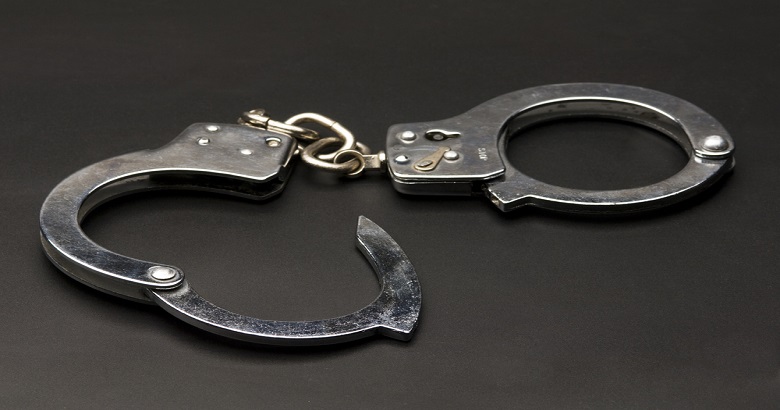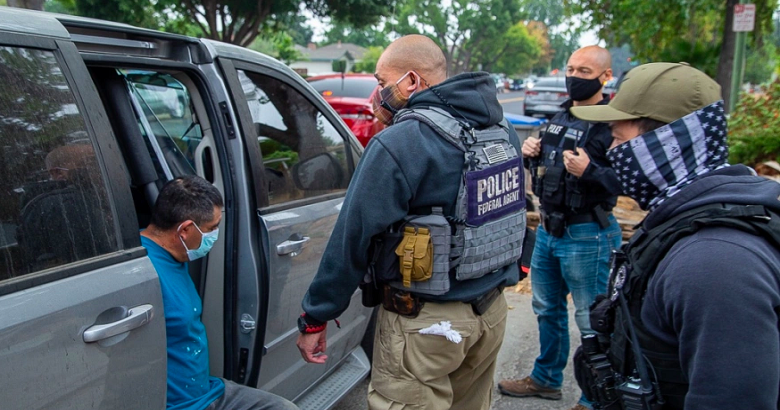
Evading arrest isn’t just about running away from the police. It’s a conscious decision to avoid being taken into custody. The reasons behind it can vary, from panic and fear to the belief that getting caught will result in severe punishment. However, this reaction, no matter the reason, often makes things worse for the individual in the long run. It’s like trying to patch a sinking ship with duct tape—temporary, but doomed to fail.
Evading arrest occurs in a variety of situations, whether it’s a simple traffic stop or a more complex criminal situation. People often underestimate the seriousness of fleeing from law enforcement, which can turn a minor offense into a much bigger legal problem. The following sections will explain why this is something you should steer clear of and what happens if you don’t.
Why Do People Evade Arrest?
You may wonder, “Why would anyone run away when the consequences are so severe?” The answer often lies in human psychology. Fear, panic, and a flight-or-fight response can cloud judgment. In some cases, individuals believe that by escaping, they’ll avoid the punishment they deserve or have done nothing wrong. This desperate attempt to gain control of the situation can lead to dangerous and unpredictable outcomes.
Imagine a deer caught in the headlights. Its instinct is to flee, despite the looming danger of the car heading towards it. This is a similar response in those who try to evade arrest. Fear clouds judgment, leading them to make impulsive and regrettable decisions.
Legal Definition of Evading Arrest
Legally speaking, evading arrest is defined as the intentional act of avoiding law enforcement’s attempt to detain or arrest someone. This can occur during traffic stops, criminal investigations, or any situation where the police have grounds to arrest an individual.
In many jurisdictions, it’s a crime separate from the offense that originally triggered the arrest. The legal language typically includes phrases like “knowingly” or “intentionally” avoiding law enforcement. It’s important to note that different regions and countries may have variations in the specific definitions and penalties related to this crime.
Evading Arrest vs. Resisting Arrest
It’s easy to confuse evading arrest with resisting arrest, but they are not the same. Resisting arrest involves physically trying to prevent an officer from handcuffing or detaining you, such as struggling or fighting back. Evading arrest, on the other hand, involves fleeing or hiding from the authorities.
Think of resisting arrest as a direct confrontation and evading arrest as an escape. Both actions can lead to additional charges, but the legal consequences can differ based on the circumstances of the encounter.
Common Scenarios Leading to Evading Arrest

There are numerous situations where individuals may decide to evade arrest. Some common scenarios include:
- Traffic Stops: Drivers may speed off after being pulled over due to outstanding warrants or fear of getting fined.
- Criminal Offenses: People involved in theft, drug-related crimes, or assault may attempt to run away from the scene to avoid immediate capture.
- Public Altercations: Fights or disturbances in public areas can escalate quickly, and those involved might try to flee when police arrive.
In these scenarios, the decision to flee often compounds the legal issues that the individual is already facing.
The Consequences of Evading Arrest
The consequences of evading arrest can be both immediate and long-lasting. From a legal perspective, what may have started as a minor offense could escalate into a felony or serious misdemeanor charge. Depending on the jurisdiction, evading arrest can lead to:
- Jail time
- Fines
- Additional charges that extend the individual’s sentence
- Loss of certain civil rights
More than that, evading arrest can lead to physical harm. High-speed chases, running on foot through dangerous environments, or engaging in reckless behavior to escape can result in accidents, injuries, or even death.
Penalties for Evading Arrest
The penalties for evading arrest depend on various factors, including the severity of the original crime, whether it was a high-speed chase, or if anyone was injured as a result of the attempt to flee. In many cases, penalties include:
- Jail or Prison Time: Evading arrest often leads to time behind bars, especially if it involves a high-speed chase.
- Fines: In some jurisdictions, individuals may be required to pay substantial fines for their actions.
- Community Service: For less severe cases, community service may be imposed as part of the punishment.
These penalties can compound the severity of the original offense, turning a minor situation into a life-altering legal battle.
What to Do if You’re Falsely Accused of Evading Arrest
If you’re falsely accused of evading arrest, it’s essential to remain calm and cooperate with law enforcement. It’s critical to:
- Seek Legal Representation: A lawyer can help navigate the complexities of your case.
- Gather Evidence: If possible, collect any evidence that proves you did not intend to evade arrest, such as witness testimonies or video footage.
- Stay Calm: Acting aggressively or trying to argue your innocence on the spot can make things worse.
The legal system allows for due process, and with the right support, you can fight false accusations.
Psychological Factors Behind Evading Arrest

Psychologically, the act of evading arrest can often be traced back to a primal fight-or-flight response. When people feel trapped or scared, their instinct might push them to flee, even if they know it’s not the rational choice. For some, it’s a momentary lapse in judgment caused by overwhelming fear.
Mental health conditions, past trauma, or substance abuse may also play a role in someone’s decision to evade law enforcement. Understanding these psychological factors helps in addressing the root causes of the behavior and providing better support for individuals involved.
Evading Arrest in Popular Culture
Evading arrest has been dramatized in countless films, TV shows, and even songs. From high-speed chases in action movies to crime dramas, the concept often appears as a thrilling plotline. But while it’s exciting on-screen, real-life evasion is far from glamorous. These portrayals can sometimes mislead individuals into thinking that running from the police is an adventure, when in reality, it can have dire consequences.
How to Avoid Evading Arrest
The best way to avoid evading arrest is to remain calm and cooperate with law enforcement, even in stressful situations. If you feel that you are being wrongfully detained, you can always contest the charges later in court. Here are some practical tips:
- Stay Calm: Breathe deeply and stay composed, even if the situation feels intense.
- Cooperate with Officers: Follow instructions and remain polite.
- Know Your Rights: Understand your legal rights, but save any disputes for later when you have legal representation.
By following these steps, you’ll avoid escalating the situation and potentially facing more severe legal consequences.
Conclusion
Evading arrest may seem like an option in a moment of panic, but it only leads to more trouble down the road. Whether it’s a minor offense or a serious crime, the best course of action is always to remain calm and comply with law enforcement. Not only can evading arrest lead to severe legal penalties, but it can also put your life and the lives of others in danger. By understanding the consequences and taking the right steps, you can avoid turning a bad situation into something much worse.
